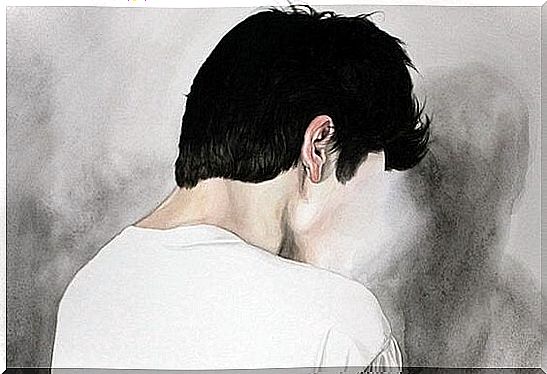The Fear Of Losing Control

When worry does the thinking for you, everything gets blurry in the long run. The fear of losing control easily takes hold because it is one of the least manageable emotions. Once this becomes the driving force behind your actions, intrusive thoughts will project threatening scenes onto your mind that you must defend yourself against. At such a moment you become afraid that you will hurt someone. That makes it important that you learn to control your anxiety (instead of the other way around).
Not surprisingly, this is one of the most common fears people experience. For example, people who constantly experience fatigue from their work become afraid that at any moment the silent tension that has built up inside them can explode.
Another example: parents naturally bear a lot of responsibility. This can be experienced as a huge, endless loop of problems and worries. These are situations where a person is constantly living in a state of fear of losing control . In addition, they are afraid to do or say anything that could hurt the person they love most.
Reality is no stranger to anyone. But while it’s normal to be afraid to some degree in our daily lives, we can’t give that emotion all its power. That way it’s almost like living with another version of yourself; a Mister Hyde that brings out the worst in you.

When fear takes control
Take this example: Robert has had many ups and downs, which has caused him a lot of anxiety. Being unemployed for nearly a year, he feels tormented in just about every area of his life. His parents, concerned about his situation, try to encourage him and invite him every day to join them for dinner. However, during the last meal that Robert had with them, he realized something: he felt a certain fear of losing control. It could just happen at any time.
Last weekend over dinner, his brother made a comment about his situation. Robert interpreted this in the most negative way imaginable. He reacted over-emotionally: he was angry, raised his voice and said some things he later regretted. The meal ended with a crying mother and his brother banging his fist on the table. Robert knew he had a problem, but he didn’t have the resources to handle it properly.
You may be familiar with this situation. In that case, it is important that you first understand how fear can affect your thoughts and behavior — particularly in response to certain stimuli.

The fear demon
When people carry too many worries, fears and insecurities, the brain interprets them in an almost Spanish way. “Be careful, because everything around you is threatening.” With this conclusion, the brain determines that self-defense against everything and everyone is the only way out.
- Your judgments are no longer rational and you relinquish control to your most instinctive, least thoughtful, least logical autopilot.
- You feel an uncomfortable kind of disconnection from reality. Nothing feels ‘real’ anymore and everything seems to be unknown. This is called derealization.
- You enter a continuous state of alertness. You are always ready to come to your own defense, react too strongly to small events, form obsessive and negative thoughts and constantly think about things that may or may not happen in the future.
How to manage your fear of losing control
Self-help books often affirm the following: “ Everyone has a chance to choose how they respond in every situation. It is your own responsibility to choose and walk the best path.” As inspiring as this may sound, it is very difficult to find the right path when you suffer from so much anxiety.
An anxious person does not think; he responds. An anxious person does not have full control over themselves and therefore does not always make the best choices. This forces us to understand that handling these situations is not a simple task. Good things are not enough when there is a lump in your throat that prevents you from breathing and thinking clearly.
Now let’s take a look at some effective strategies to reduce the fear of losing control.

Steps to prevent fear from taking over
- Don’t try to hold yourself back. Think about it. You spend most of your time managing your frustration, hiding your thoughts, censoring your emotions, and faking your mood. You hold so much that you need to do something to free yourself from this. Put everything you normally keep down on the table and say what you feel aloud, without fear.
- Talk about your fear and negotiate with it. One way to take power from your fear is to name it and talk to it. “I am afraid of losing my family because I am aware that I am losing control of my emotions. That’s why I say things that I later regret.”
- Control your thoughts to control your emotions. This is part of cognitive behavioral therapy, one of the best treatments for people who are afraid of losing control.
- The last step requires you to free your body and so does your mind. You can do this in several ways. Think of Jacobson’s progressive muscle relaxation, mindfulness, yoga or any other form of movement. These strategies will help you release the physical tension in your body. In this way you also learn to adopt a more relaxed attitude in your mind.
It is possible to regain control of yourself. You just have to put in some effort!









